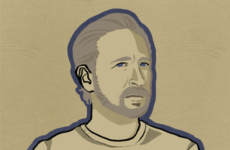Justin Trudeau has just been reelected as Prime Minister of Canada and is now headed into his second term. However, his victory was a narrow win. Trudeau’s Liberal Party lost its majority in government, claiming just 46% of the seats in the House of Commons. The Liberal Party received a meager 33% of the popular vote, less than its rival, the Conservative Party, which came in at 34.4%. What’s just as, if not more, important is the way that things have changed since Trudeau’s first win, in 2015.
The numbers tell the story. According to Gallup, Trudeau’s approval rating dropped from 72% in 2016 to 46% right before the election. Canadian citizens’ faith in Trudeau has been tainted, particularly after he illegally interfered in a federal investigation of a Quebec-based construction company and pictures surfaced of him wearing blackface and brownface in the past. Voters in the energy-producing regions of Canada, threatened by Liberals’ emphasis on green energy, also played a big role in the Conservatives’ popularity this election.
Seeing as Justin Trudeau has become Prime Minister again despite his drop in numbers, it is clear he still holds promise and hope for Canadians. However, Trudeau must prepare himself for a second term that will begin with much less glamor and charm than his first.
The first thing that will present a major challenge for Trudeau is uniting the different parties in Canada’s House of Commons. With this election, the Prime Minister’s Liberal Party lost its majority in the House. As a strong Liberal, Trudeau’s past laws have included the implementation of a carbon tax and the legalization of recreational marijuana. But if Trudeau is preparing to pass similarly leftist laws in his second term, he will need to think again. His legislation cannot be as radical as it once was and must appease the other parties in the House, namely the Conservatives, Bloc Québécois, and New Democrats. Liberal Canadians will have to accept that any reforms they have been hoping for will likely not be happening in the next few years, particularly regarding heavily disputed topics like climate change, abortion, and LGBTQ+ rights.
Trudeau must also increase transparency regarding his true positions on different political issues. When Canadians first voted for Trudeau in 2015, they expected to see a prime minister who would fight tirelessly to address issues like global warming and indigenous peoples’ rights. However, not everyone was satisfied. Though Trudeau ratified a carbon tax, he later supported the expansion of oil pipelines. Likewise, the same man who had gone around advocating for indigenous peoples’ rights during his campaign also understood that these very same pipelines he supported were trespassing on natives’ land. Trudeau’s lack of fidelity and resolve on his key campaign promises has weakened Canadians’ trust in him. After his narrow win, Trudeau must solidify his viewpoints through action if he wants the unwavering support of voters in the future.
Albeit, Trudeau has not totally lost the support or approval of Canadians. In fact, he has done a surprisingly good job of recovering from his scandals and reestablishing Canadians’ faith in him; thus, Trudeau is now assured a second term as prime minister. However, his reproachable actions, controversial legislation, and wavering standpoints have certainly shaken voters’ trust. This election served as an excellent wakeup call for Trudeau. He must now seize his second opportunity to govern using what he has learned from this election.




